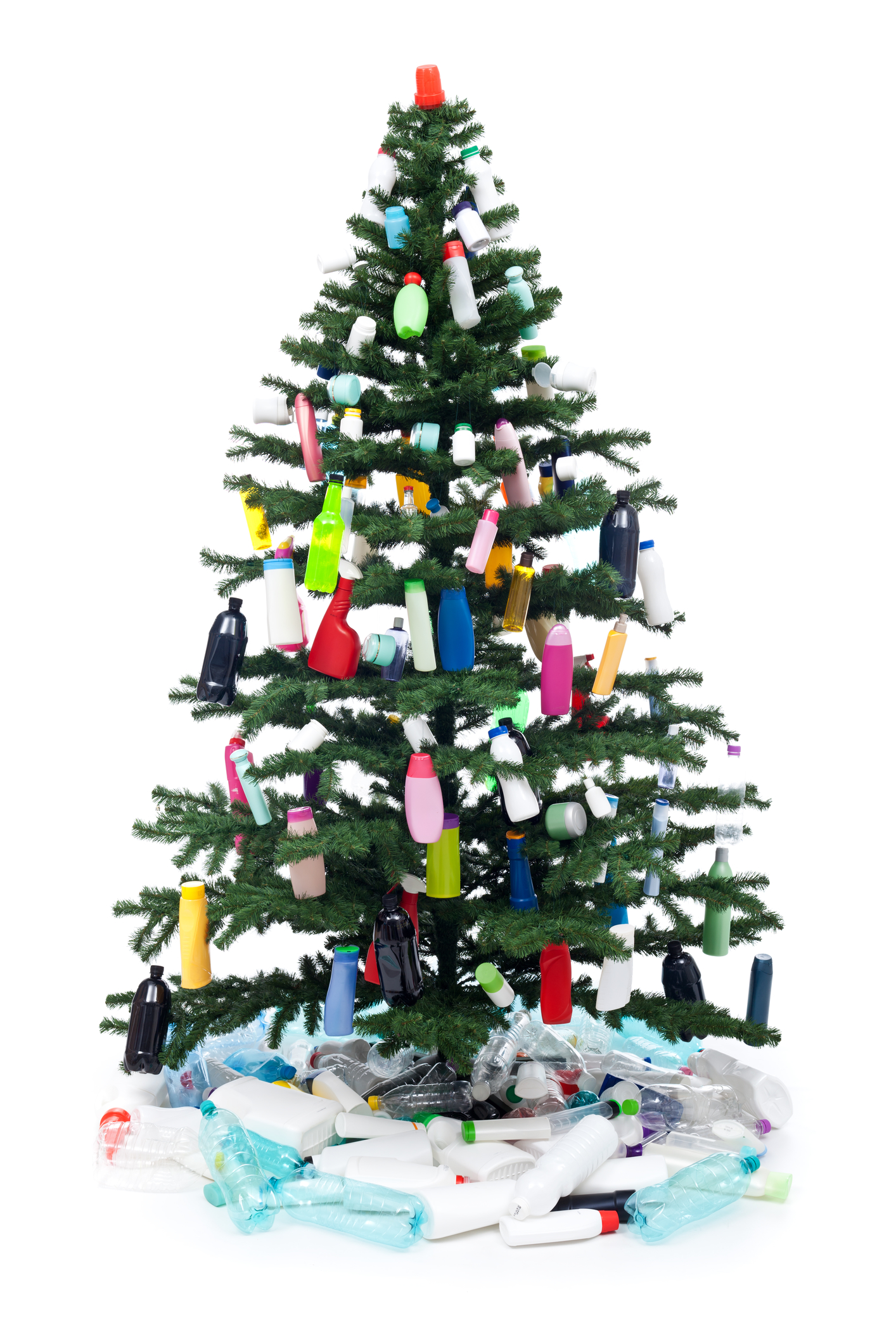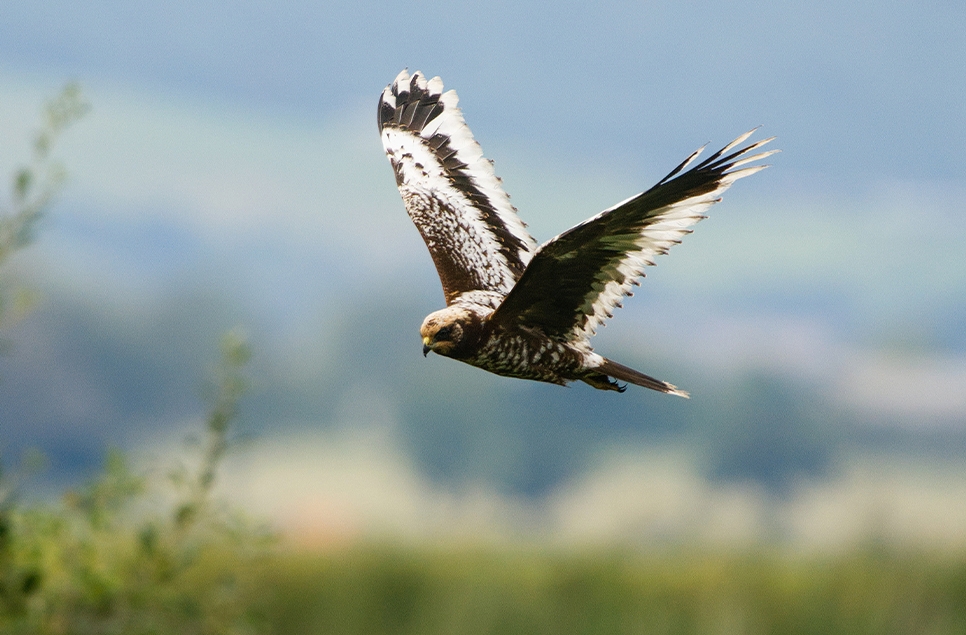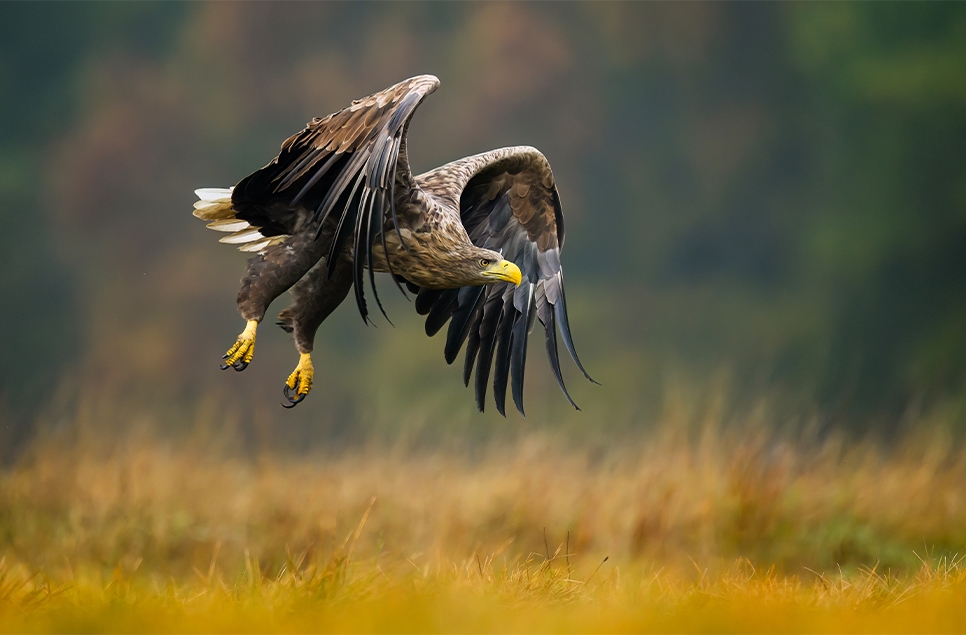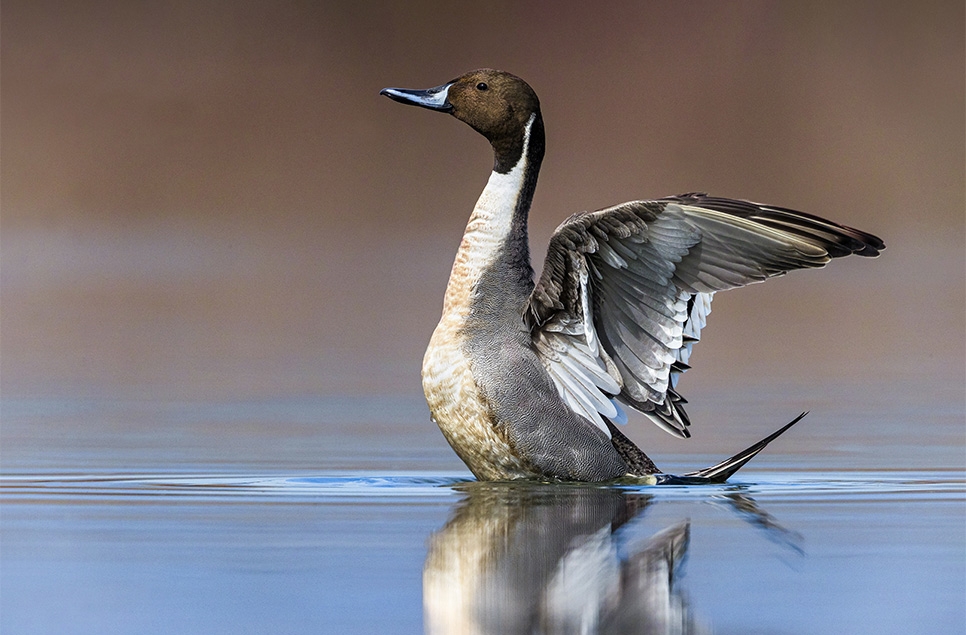Christmas waste - the weight of 3.3m penguins!
WWT and 17 other environment and animal welfare charities* are championing moves to cut plastics and waste this Christmas. Together we are calling for:
- businesses to slash wasteful packaging;
- governments across the four nations to commit to a raft of strong measures to tackle plastic pollution in the New Year;
- and for the public to help cut the plague of plastic pollution this Christmas by using less and recycling more.
The calls come as the charities publish new estimates on the startling scale of plastic and other waste this Christmas, and in the wake of disturbing images showing the impact of plastic on sea life in the last episode of Blue Planet II.
New UK Christmas waste figures from Wildlife and Countryside Link:
 Around 114,000 tonnes of plastic packaging will be thrown away and not recycled in the UK this Christmas – which is more than the weight of 3.3million Emperor penguins
Around 114,000 tonnes of plastic packaging will be thrown away and not recycled in the UK this Christmas – which is more than the weight of 3.3million Emperor penguins- Around 88 square km of wrapping paper are likely to be used in the UK this year – that’s enough to cover either Brighton and Hove, Coventry, Newport, Preston, Reading, Sunderland or Swansea
- The UK uses a staggering 300,000 tonnes of card packaging at Christmas (Source WRAP) –the equivalent weight of 2 million Reindeer
- The total waste created in the UK this Christmas from food and drink, packaging, wrapping paper, cards, Christmas trees and other rubbish, is likely to exceed 5 million tonnes of waste - equivalent to around 450,000 double decker buses
The charities are particularly highlighting plastic waste, as it degrades so slowly and is having such a devastating impact on our oceans. They are calling for strong commitments from businesses and government to reduce excessive packaging waste, and for the public to give a gift to the environment this Christmas and recycle as much glass, paper, card, metal, foil and wood, as well as plastic, as possible.
Peter Morris, Head of PR and Communications at WWT, said:
"Waste is growing, wildlife is disappearing and we need to see the connection. Less waste, more recycling and more reuse reduces threats to wildlife. Christmas cards are about the sentiment not the size so even using smaller cuter Christmas cards and putting them in recycling helps a little towards appreciating both people and animals at this time of year. Putting your plastic in the recycling is also a great help, but we need concerted action from business and government to slash the amount of plastic and other packaging being pumped out in the first place."
Paul de Zylva, Senior Nature Campaigner at Friends of the Earth, said:
"Marking Christmas and the New Year can see our bins bulge with a third more waste. This season, let’s help cut threats to turtles and other sea life by getting drastic with plastic."
Dr Elaine King, Director at Wildlife and Countryside Link, said:
"These figures shine a light on the harsh reality of the impact we have on our environment and wildlife. Our waste can be invisible to us once it’s in the bin. So it is easy to forget that it ends up in landfill or finds its way into our rivers and seas – polluting our land, oceans, animals, fish, birds and insects. We need to give a gift to the environment and get our packaging waste under control."
Christmas is the most wasteful time of year, with high proportions of waste which could be recycled being thrown in the bin instead. Plastics, foil and aerosols are the recyclables most likely to evade the recycling bin and almost two thirds of the UK population say uncertainty over what can be recycled leads them to put items in the waste bin.
The amount of plastic going in our waste bins at Christmas has fallen slightly over the last decade, from 125,0000 tonnes to 114,000. This is largely due to the public recycling more, as the volume of plastic packaging we use has increased substantially during the same period.
However, the scale of plastic waste remains vast and the public can only do so much to help tackle our plastic waste crisis. Governments across the four nations and businesses must take a lead in making change happen to aid our ailing environment.
The NGOs are urging the UK Government to take the following actions to both discourage companies and individuals from using throwaway plastic and incentivise sustainable alternatives:
- Set charges on single-use plastics at a level which will achieve real change
- Allocate revenues generated by any plastic charges to fund environmental conservation and improvements
- Provide incentives to manufacturers to reduce single-use packaging and encourage environmentally-friendly alternatives
- Phase-out the most harmful plastics that are most difficult to recycle
Top tips for recycling at Christmas:
- Examine plastic packaging – Recycling symbols on packaging show what can be recycled. Check Recycle Now if you’re unsure of a symbol. All clear and coloured plastic bottles from the home can usually be recycled, including bleach products. The only things that can’t be recycled are chemical containers, like antifreeze, and you should take pumps off soap dispensers before recycling.
- Maximise recycling space –fold down cardboard boxes and squash down cans and bottles to make as much space in your recycling bin as possible and avoid resorting to your waste bin.
- Avoid putting plastic bags in recycling bins – Plastic bags are recyclable, but take these back to your local supermarket as they can clog up recycling sorting machines.
- Scrunch-test your wrapping – All wrapping paper can be recycled, except metallic and glitter papers. You can use the ‘scrunch test’ - if you scrunch it and it stays in a ball, it can be recycled.
- Sainsbury’s, in partnership with the Forest Stewardship Council UK, offer customers the opportunity to recycle their old Christmas cards, wrapping paper and Christmas lights in store from Boxing Day until 8 January 2018
*The 18 environment and animal welfare organisations are A Rocha UK, Born Free Foundation, Environmental Investigation Agency, Friends of the Earth, Greenpeace, Humane Society International-UK, IFAW, Institute of Fisheries Management, ORCA, National Trust, Plantlife, The Rivers Trust, RSPCA, Whale and Dolphin Conservation, The Wildlife Trusts, Wildfowl & Wetlands Trust, WWF-UK and Zoological Society of London.


